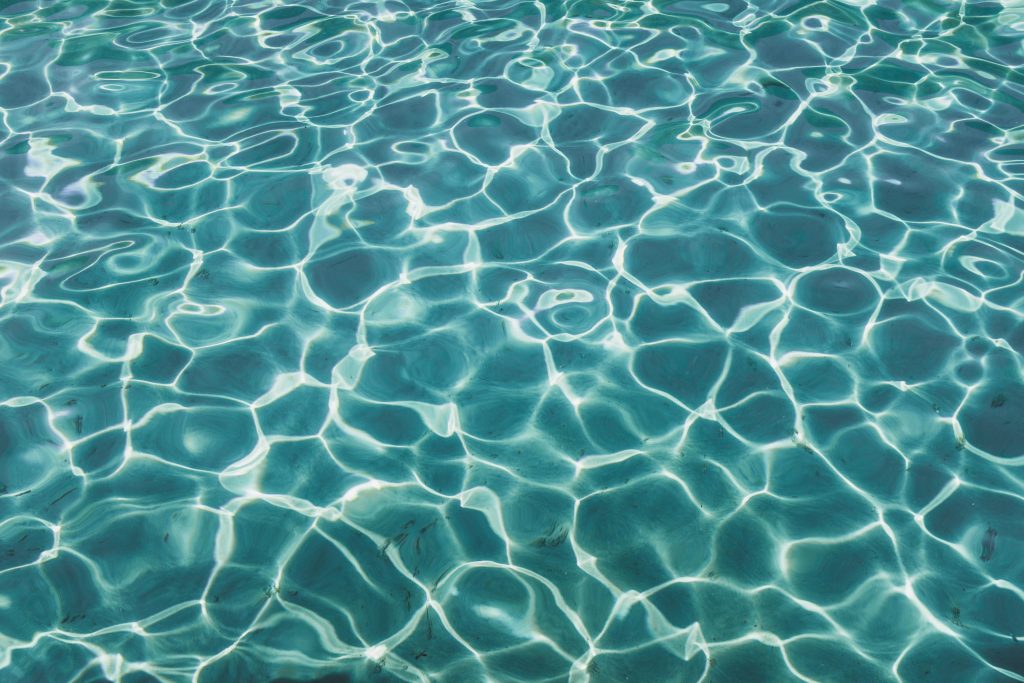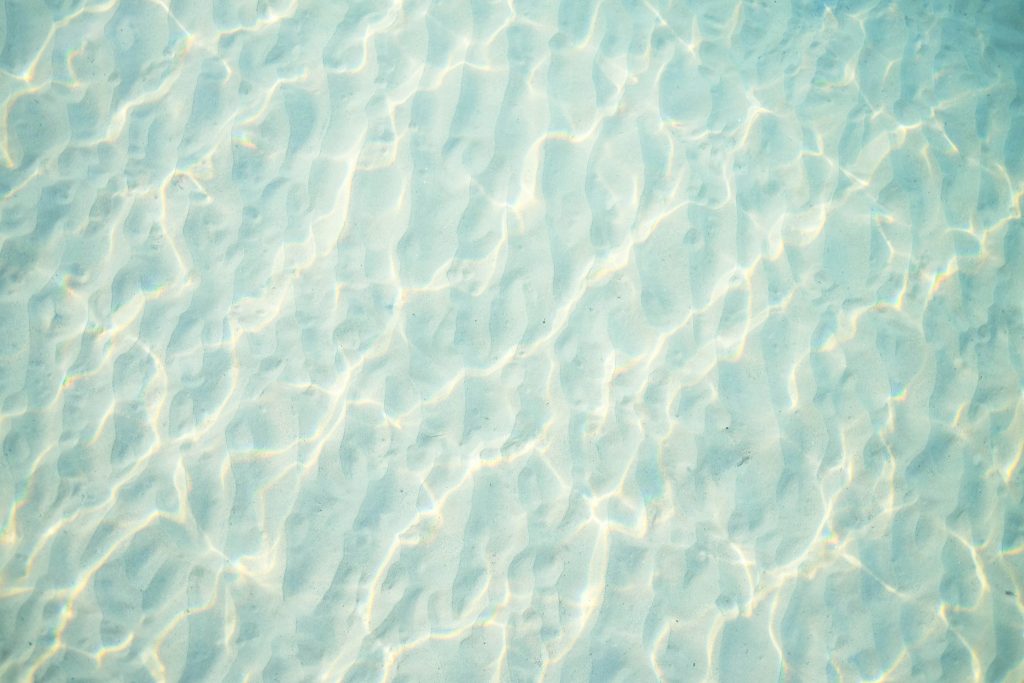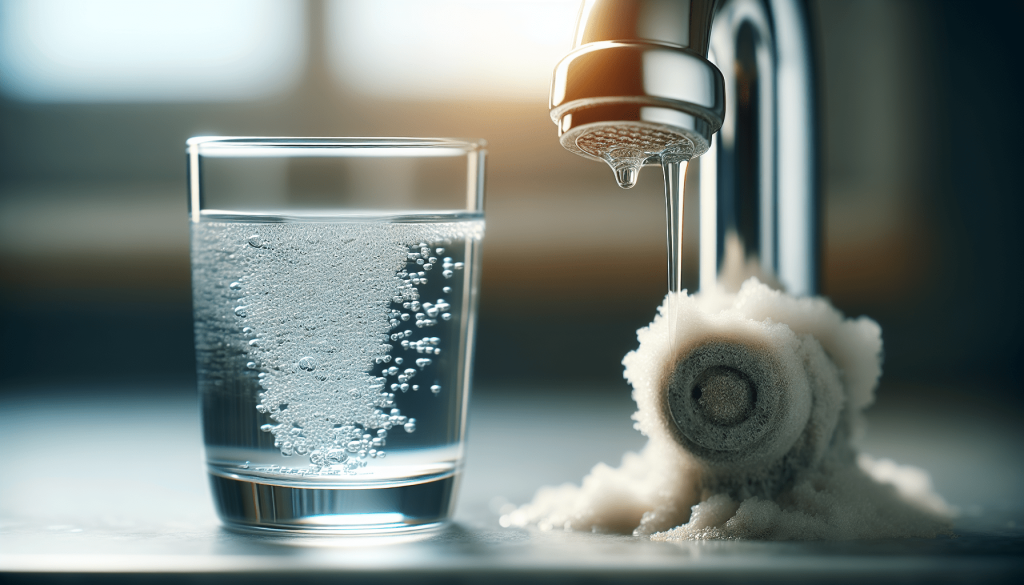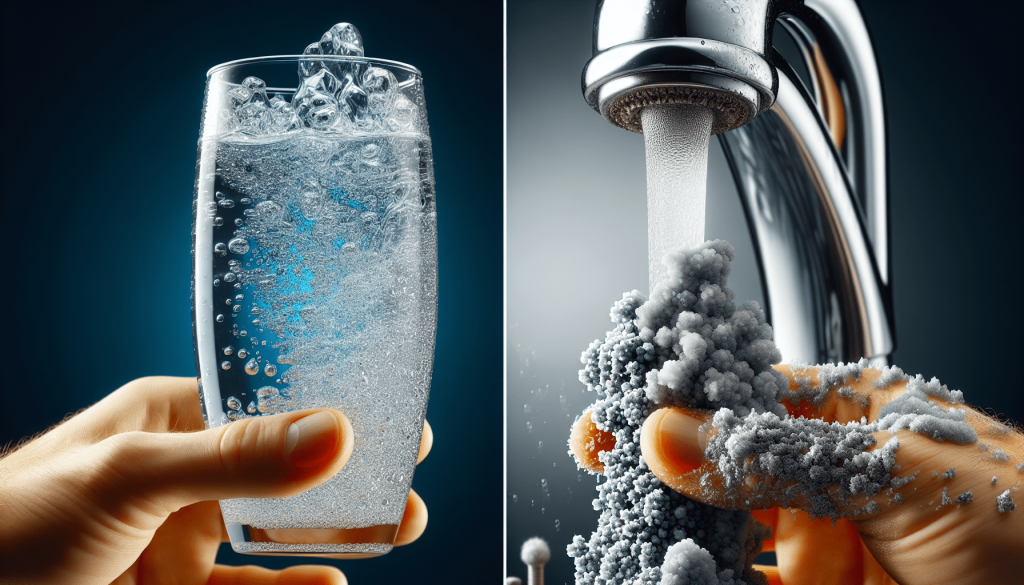Have you ever wondered if investing in a water softener is truly worth it? Well, look no further for the answer to that question! In this article, we will explore the benefits and drawbacks of having a water softener and help you make an informed decision. From the effects on your skin and hair to the longevity of your appliances, we’ll cover it all. So, sit back, relax, and let’s dive into the world of water softeners to find out if they are truly worth it in the long run.

Benefits of Having a Water Softener
Reduced Scaling and Mineral Build-Up
One of the key benefits of having a water softener is the reduction in scaling and mineral build-up that can occur in your plumbing system. Hard water, which is high in minerals like calcium and magnesium, can leave behind deposits on your pipes, fixtures, and appliances. Over time, these deposits can lead to clogs, reduced water flow, and even damage to your plumbing system. By installing a water softener, you can prevent these issues and prolong the lifespan of your plumbing system.
Extended Lifespan of Appliances
In addition to protecting your plumbing system, a water softener can also extend the lifespan of your appliances. The minerals in hard water can accumulate in appliances like dishwashers, washing machines, and water heaters, causing them to work less efficiently and eventually break down. With a water softener, you can reduce the mineral content in the water that flows through your appliances, allowing them to function optimally and last longer.
Improved Water Quality
Water softeners not only protect your plumbing system and appliances, but they also improve the overall quality of your water. Hard water often has an unpleasant taste and can leave a residue on dishes and glassware. It can also make laundry feel stiff and rough, and leave a residue on your skin and hair after showering. By removing the minerals that cause these issues, a water softener can provide you with cleaner, fresher-tasting water, softer clothes, and healthier-looking skin and hair.
Savings on Cleaning Products and Energy Bills
Using a water softener can also lead to significant savings on cleaning products and energy bills. Hard water requires more detergent to create a lather and can leave soap scum on surfaces, requiring additional cleaning. With a water softener, you can use less soap and cleaning products, leading to cost savings over time. Additionally, the reduced build-up of minerals in your appliances can improve their energy efficiency, resulting in lower energy bills.
Types of Water Softeners
Salt-Based Water Softeners
Salt-based water softeners are one of the most common types available on the market. These systems use resin beads to remove the mineral ions from the water, and they require the periodic regeneration of the resin beads using salt. While effective at removing minerals, these water softeners do add a small amount of sodium to the water, which can be a concern for individuals on sodium-restricted diets.
Salt-Free Water Softeners
Salt-free water softeners, also known as descalers or conditioners, operate on a different principle than salt-based systems. Instead of removing minerals from the water, they change the structure of the minerals, preventing them from forming scale. While these systems are not as effective at removing minerals as salt-based systems, they are a viable option for those looking to avoid the addition of salt to their water.
Dual-Tank Water Softeners
Dual-tank water softeners offer the convenience of continuous soft water without interruptions during the regeneration process. These systems have two tanks, one in operation while the other regenerates. This allows for a constant supply of softened water, making them a popular choice for larger households or those with higher water usage.
Magnetic Water Softeners
Magnetic water softeners work by using magnets to alter the structure of the minerals in the water, preventing them from adhering to surfaces or forming scale. While these systems have gained popularity, their effectiveness is still a subject of debate among experts. Some studies suggest that they may provide some level of water conditioning, while others have found little to no impact.
Factors to Consider Before Installing a Water Softener
Water Hardness Levels
Before deciding on a water softener, it is important to assess the hardness level of your water. This can be done through a simple water test kit or by contacting your local water utility or a water treatment professional. Understanding the hardness level will help determine the type and size of water softener you need, as well as the frequency of regeneration required.
Water Usage and Flow Rate
Another important factor to consider is your household’s water usage and flow rate. Larger households or those with high water demand may require a water softener with a higher capacity to ensure a continuous supply of softened water. Be sure to consider your daily water consumption and the peak flow rates during times of maximum usage when selecting a water softener.
Space Requirements and Installation
Water softeners require a specific amount of space for installation, including room for the unit itself, a brine tank, and any additional equipment. It is essential to assess the available space in your home before purchasing a water softener to ensure a proper fit. Installation may also require plumbing modifications, so it is recommended to consult with a professional or follow the manufacturer’s guidelines for proper installation.
Maintenance and Operating Costs
Like any home appliance, water softeners require regular maintenance and incur operating costs. The maintenance typically includes occasional resin bed cleaning, replenishing salt or other chemicals, and periodic checks for leaks or malfunctions. It is important to factor in these maintenance tasks and associated costs when considering the overall investment in a water softener.
Installation and Maintenance Process
Assessing Water Hardness
Before installing a water softener, it is crucial to assess the hardness of your water. As mentioned earlier, this can be done through a water test kit or by contacting a water treatment professional. By understanding the hardness level, you can determine the appropriate size and type of water softener for your needs.
Selecting the Right Water Softener
Once you have determined the hardness level of your water, you can select the right water softener for your home. Consider factors such as the size of your household, water usage, and available space for installation. It is recommended to research different brands and models, read customer reviews, and consult with professionals to ensure you choose a reliable and effective water softener.
Installation Process
Installation of a water softener usually involves connecting the unit to your home’s plumbing system. This may require some plumbing modifications, such as adding bypass valves or connecting to the main water supply line. It is recommended to follow the manufacturer’s instructions carefully or hire a professional plumber to ensure a proper and leak-free installation.
Regular Maintenance and Upkeep
To keep your water softener functioning optimally, regular maintenance is required. This includes checking and replenishing salt or other chemicals, cleaning the resin bed periodically, and inspecting for any leaks or malfunctions. It is important to follow the manufacturer’s guidelines for maintenance and keep a regular schedule to ensure the longevity and efficiency of your water softener.

Potential Drawbacks of Water Softeners
Increased Sodium Levels in Drinking Water
One of the main concerns associated with water softeners is the potential increase in sodium levels in the drinking water. Salt-based water softeners introduce sodium ions into the water during the regeneration process. While the amount of sodium added is typically minimal, individuals on sodium-restricted diets may need to consider alternative water treatment options or consult with a healthcare professional.
Environmental Impact
Salt-based water softeners can have an environmental impact due to the discharge of brine into wastewater systems. The increased salt concentration in the wastewater can be detrimental to the environment and can affect the quality of water bodies. Salt-free alternatives or technologies that minimize the use of salt can be considered to mitigate the environmental impact.
Additional Costs and Maintenance
Water softeners require ongoing maintenance and operation costs. This includes purchasing salt or other chemicals for regeneration, occasional servicing or repairs, and potential replacements of parts over time. It is important to consider these additional costs when assessing the overall investment in a water softener.
Incompatibility with Some Appliances
While water softeners offer numerous benefits, they may not be compatible with certain appliances or systems. Some appliances, particularly those that rely on the minerals present in hard water, may require adjustments or alternative treatment methods. Consultation with manufacturers or professionals can help determine if your appliances are compatible with softened water or if alternative solutions are needed.
Alternatives to Water Softeners
Water Conditioners
Water conditioners, also known as descalers or non-salt softeners, are an alternative to traditional salt-based water softeners. These systems use various technologies to alter the structure of minerals in the water, preventing scale formation. While they may not remove minerals entirely like salt-based systems, they can provide some level of water conditioning without the addition of salt.
Reverse Osmosis Systems
Reverse osmosis systems are another option for treating hard water. These systems use a semi-permeable membrane to remove not only minerals but also other impurities from the water, resulting in softened water. However, it is important to note that reverse osmosis systems may have a lower water flow rate and generally waste more water during the filtration process.
Filtered Water Bottles
For individuals looking for a portable solution, filtered water bottles can be an option. These bottles contain built-in filters that help reduce the mineral content present in tap water. While they may not provide the same level of water conditioning as other methods, they are a convenient way to enjoy filtered water while on the go.
Using Vinegar or Lemon Juice
Aside from investing in a water softener or alternative systems, there are DIY methods to mitigate the effects of hard water. Using vinegar or lemon juice during certain household tasks, such as cleaning or doing laundry, can help remove mineral deposits and reduce the negative effects of hard water. However, these methods may not provide consistent results and may require more effort compared to using a water softener.

Cost Analysis: Is It Worth It?
Upfront Costs of Purchase and Installation
The upfront costs of purchasing and installing a water softener can vary depending on the size, brand, and complexity of the system. Salt-based water softeners generally have a lower initial cost compared to salt-free or dual-tank systems. Additionally, hiring a professional plumber for installation can incur additional fees. It is important to consider these upfront costs when determining the overall value of a water softener.
Ongoing Maintenance and Salt/Chemical Expenses
Water softeners require regular maintenance and incur ongoing expenses, such as purchasing salt or other chemicals for regeneration. The frequency of regeneration and associated costs will depend on the hardness of your water and the capacity of the water softener. It is essential to factor in these ongoing expenses to assess the long-term cost-effectiveness of a water softener.
Comparison with Potential Benefits and Savings
When evaluating the cost-effectiveness of a water softener, it is crucial to compare the potential benefits and savings it can provide. Consider the reduction in scaling and mineral build-up, extended lifespan of appliances, improved water quality, and savings on cleaning products and energy bills. By quantifying the potential savings from these benefits, you can make an informed decision on whether the investment in a water softener is worth it.
The Impact of Water Softeners on Health
Effectiveness in Reducing Skin and Hair Issues
One of the primary reasons people invest in water softeners is to improve the condition of their skin and hair. Hard water can leave residues on the skin and hair, leading to dryness, irritation, and dullness. By using a water softener, many individuals report significant improvements in the softness and appearance of their skin and hair. However, the effectiveness may vary depending on personal factors and the severity of the water hardness.
Impact on People with Sodium-Restricted Diets
Individuals on sodium-restricted diets may have concerns about the sodium content of water softened by salt-based systems. While the amount of sodium added during the regeneration process is typically minimal, it can still contribute to daily sodium intake. For those with strict dietary restrictions, consulting with a healthcare professional or considering alternative water treatment options may be necessary.
Controversies Surrounding the Use of Softened Water
There are ongoing debates and controversies surrounding the use of softened water. Some studies suggest that the addition of sodium through salt-based water softeners may have negative health effects, while others argue that the amounts are insignificant. Additionally, soft water may not be suitable for certain uses, such as brewing or gardening, where the minerals in hard water are desired. It is important to gather information from reputable sources and weigh the potential benefits against any concerns before making a decision.

Determining the Need for a Water Softener
Testing Water Hardness
To determine whether a water softener is necessary, testing the hardness of your water is crucial. Water test kits are readily available and can provide valuable information about the mineral content in your water. Alternatively, contacting your local water utility or a water treatment professional can provide accurate measurements of water hardness.
Considering Individual Needs and Preferences
Each household has unique needs and preferences when it comes to their water quality. Consider the importance of reduced scaling, extended appliance lifespan, improved water taste, and overall convenience. Assess the impact of hard water on your daily life and weigh it against the potential benefits of investing in a water softener.
Consulting with a Water Treatment Professional
If you are uncertain about the need for a water softener or need assistance in selecting the right system for your home, it is advisable to consult with a water treatment professional. These professionals have the expertise to assess your specific water quality issues, recommend suitable treatment options, and guide you through the installation and maintenance process.
Weighing the Pros and Cons
Ultimately, the decision to install a water softener should be based on a careful evaluation of the pros and cons. Consider the benefits, costs, and potential drawbacks discussed earlier in this article. By weighing these factors and considering your specific circumstances, you can make an informed decision that aligns with your needs and priorities.
Conclusion
In conclusion, the decision to have a water softener is a personal one that depends on individual needs, preferences, and circumstances. Water softeners offer various benefits, including reduced scaling, extended appliance lifespan, improved water quality, and potential savings on cleaning products and energy bills. However, there are factors to consider, such as water hardness levels, water usage, space requirements, ongoing maintenance costs, and potential drawbacks.
It is essential to research and understand the different types of water softeners available, such as salt-based, salt-free, dual-tank, and magnetic systems. Alternatives like water conditioners, reverse osmosis systems, filtered water bottles, or DIY methods using vinegar or lemon juice may also be worth exploring.
Determining the need for a water softener involves testing the water hardness, considering individual needs and preferences, consulting with professionals, and weighing the pros and cons. By conducting a comprehensive cost analysis, comparing potential benefits and savings, and assessing the impact on health and the environment, an informed decision can be made.
Ultimately, investing in a water softener can be a good decision for some situations, especially where the benefits outweigh the costs. However, it is important to carefully evaluate the factors outlined in this article and consider all aspects before making a purchase.



